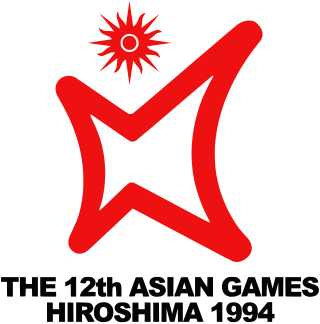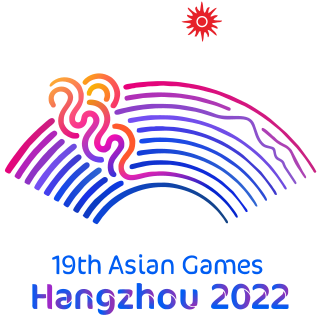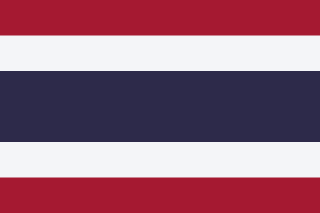
The Asian Games, also known as Asiad, is a continental multi-sport event held every four years among athletes from all over Asia. The Games were regulated by the Asian Games Federation (AGF) from the first Games in New Delhi, India, until the 1978 Games. Since the 1982 Games, they have been organized by the Olympic Council of Asia (OCA), after the breakup of the Asian Games Federation. The Games are recognized by the International Olympic Committee (IOC) and are described as the second largest multi-sport event after the Olympic Games.

The Asian Football Confederation is the governing body of association football, beach football, and futsal in some countries/territories in Asia and Oceania. It has 47 member countries most of which are located in Asia. Australia, formerly in OFC, joined AFC in 2006. Guam and the Northern Mariana Islands, both territories of the United States, are also AFC members that are geographically in Oceania. The Asian Ladies Football Confederation (ALFC) was the section of AFC who managed women's association football in Asia. The group was independently founded in April 1968 in a meeting involving Taiwan, Hong Kong, Malaysia and Singapore. In 1986 ALFC merged with AFC.

The India national football team represents India in international football and is governed by the All India Football Federation (AIFF). The team is affiliated to FIFA and Asian Football Confederation (AFC).

The Iraq national football team represents Iraq in international football and is controlled by the Iraq Football Association (IFA), the governing body for football in Iraq. Iraq's usual home venue is the Basra International Stadium.

The Southeast Asian Games, also known as the SEA Games, is a biennial multi-sport event involving participants from the current 11 countries of Southeast Asia. The games are under the regulation of the Southeast Asian Games Federation with supervision by the International Olympic Committee (IOC) and the Olympic Council of Asia (OCA).

Gelora Bung Karno Main Stadium, formerly Senayan Main Stadium and Gelora Senayan Main Stadium, is a multi-purpose stadium located at the center of the Gelora Bung Karno Sports Complex in Central Jakarta, Indonesia. It is mostly used for football matches. The stadium is named after Sukarno, the then-president of Indonesia, who sparked the idea of building the sports complex.

The Philippines men's national basketball team, commonly known as Gilas Pilipinas, is the basketball team representing the Philippines. The team is managed by the Samahang Basketbol ng Pilipinas.

The 1994 Asian Games, also known as the XII Asiad and the 12th Asian Games, were held from October 2 to 16, 1994, in Hiroshima, Japan. The main theme of this edition was to promote peace and harmony among Asian nations. It was emphasized by the host because the venue was the site of the first atomic bomb attack 49 years earlier. Due to the 1991 Gulf War, Iraq was suspended from the games. The games debuted former republics of the Soviet Union: Kazakhstan, Kyrgyzstan, Tajikistan, Turkmenistan, and Uzbekistan.

The 2010 Asian Games, officially known as the XVI Asian Games and also known as Guangzhou 2010, were a regional multi-sport event that had taken place from November 12 to November 27, 2010 in Guangzhou, Guangdong, China. It was the second time China hosted the Asian Games, with the first one being Asian Games 1990 in Beijing.

The 2014 Asian Games, officially known as the 17th Asian Games and also known as Incheon 2014, was a pan-Asian multi-sport event held in Incheon, South Korea. This was the third time South Korea hosted the Asian Games, having previously hosted in 1986 and 2002.

The Asian Winter Games (AWG) is an international multi-sport event held every four years for members of the Olympic Council of Asia (OCA) which features winter events. The Japanese Olympic Committee first suggested the idea of holding a winter version of the Asian Games in 1982. Their efforts were rewarded when they were finally given hosting rights for the first edition that was held in Sapporo in 1986, as the city had the infrastructure and expertise gained from hosting of the 1972 Winter Olympics.
The men's football tournament has been a regular Asian Games sporting event since the 1951 edition, while the women's tournament began in 1990.

The Asian Para Games also known as Para Asiad is a multi-sport event regulated by the Asian Paralympic Committee that's held every four years after every Asian Games for athletes with physical disabilities. Both events had adopted the strategy used by the Olympic and Paralympic Games of having both games in the same city. However, the exclusion of Asian Para Games from Asian Games host city contract meant that both events run independently of each other. The Games are recognized by the International Paralympic Committee (IPC) and are described as the second largest multi-sport event after the Paralympic Games.

The Indian National Kabaddi Team represents India in international men's kabaddi competitions. The team is by far the most successful national kabaddi side of any country, winning gold medals at the Asian Games in 1990, 1994, 1998, 2002, 2006, 2010, and 2014, as well as winning all three Kabaddi World Cup events to date. Pardeep Narwal the current captain of the team after Deepak Niwas Hooda was suffering from bad form in PKL 9.

The 2018 Asian Games, officially known as the 18th Asian Games and also known as Jakarta-Palembang 2018 or Indonesia 2018, was a continental multi-sport event that was held from 18 August to 2 September 2018 in Jakarta and Palembang.

The 2022 Asian Games, officially known as the 19th Asian Games, also known as Hangzhou 2022,, will be a multi-sport event celebrated in Hangzhou, Zhejiang, China. Hangzhou will be the third Chinese city to host the Asian Games, after Beijing in 1990 and Guangzhou in 2010.

The 2021 Southeast Asian Games, officially known as the 31st Southeast Asian Games,31st SEA Games or SEA Games 31, and also recognized as Hanoi 2021, was the 31st edition of the Southeast Asian Games, the biennial regional multi-sport event which was held in Hanoi, Vietnam and its surrounding cities from 12 to 23 May 2022.

Thailand participated in the 2018 Asian Games in Jakarta and Palembang, Indonesia as a competing nation, from 18 August to 2 September 2018. This is the nation's eighteenth appearance at the Asian Games, since the inaugural games in New Delhi.

Indonesia was the host nation of 2018 Asian Games held in Jakarta and Palembang from 18 August to 2 September 2018. Indonesia competed with 938 athletes, the most in the Games.

Kemayoran Athletes Village is a building complex located in Kemayoran District, Jakarta, Indonesia. The site was developed as the athlete's village for the 2018 Asian Games and 2018 Asian Para Games which was held in Jakarta, built on an area of 10 hectares land, which had 7,424 apartments in 10 towers. Total accommodation capacity of 22,272 at the village exceeded International Olympic Committee standards, which require Olympics hosts to provide rooms for at least 14,000 athletes.




















